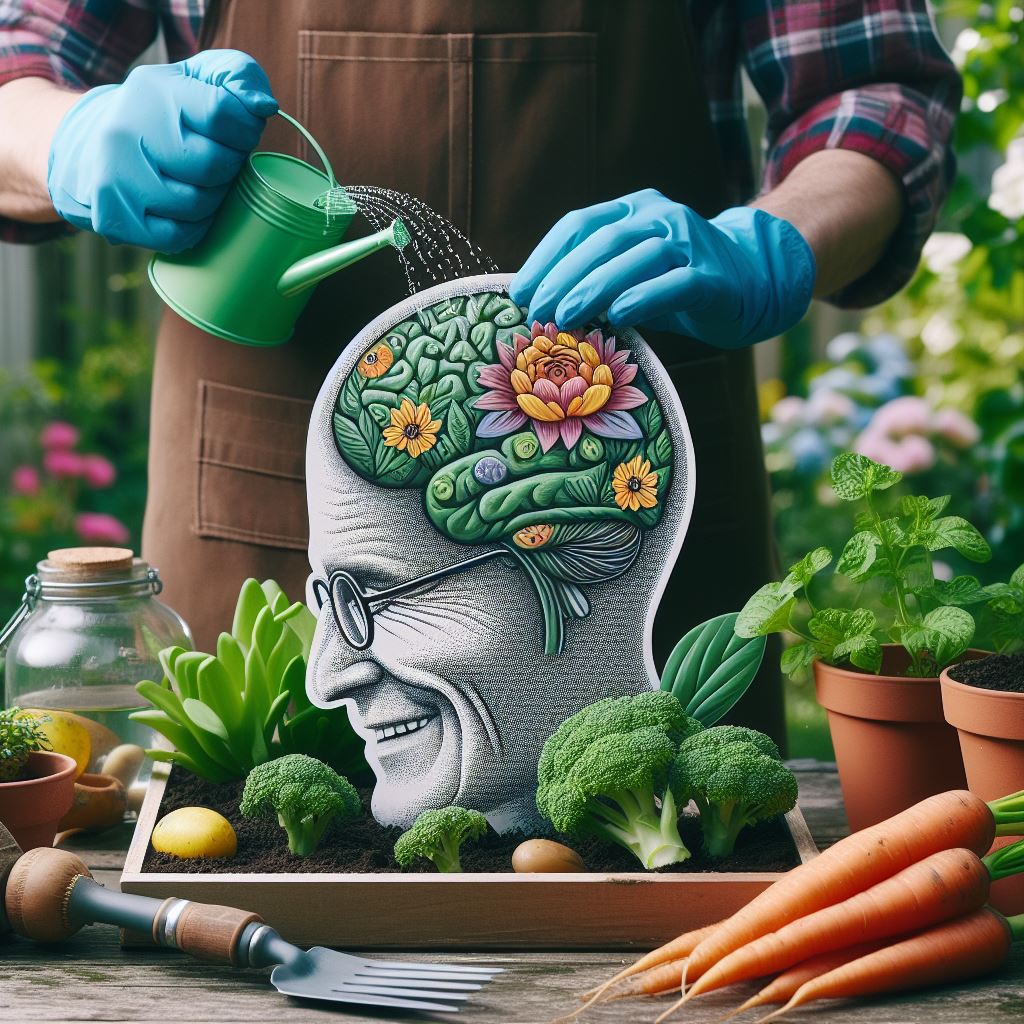Top 7 Surprising Ways Gardening Boosts Brain Health & Happiness
In the bustling pace of modern life, finding solace and peace of mind is becoming increasingly challenging. However, amidst the chaos, a simple yet profound activity stands out – gardening. The amalgamation of nurturing plants and being amidst nature holds immense therapeutic potential, not just for physical health but also for mental well-being. Delving into the symbiotic relationship between gardening and brain health unveils a plethora of benefits that extend beyond the visible blooms. Let’s explore how tending to your garden can nurture both your plants and your mind.
Gardening and Brain Health
Gardening: A Therapy for the Mind
In today’s fast-paced world, stress and anxiety have become commonplace. However, escaping the grip of these modern-day maladies might be as simple as stepping into your garden. Engaging in gardening activities provides a therapeutic retreat for the mind. Whether it’s digging through the soil, planting seeds, or simply admiring the blossoming flowers, each act fosters a sense of tranquility and mindfulness. The rhythmic motions of gardening offer a form of active meditation, calming the mind and reducing stress levels. This natural form of therapy stimulates the release of endorphins, the feel-good hormones, promoting a sense of happiness and well-being.
Green Therapy: Connecting with Nature
In the concrete jungle of urban living, connecting with nature has become a rare luxury. However, indulging in gardening activities bridges this gap, allowing individuals to immerse themselves in the serenity of greenery. Scientific studies have demonstrated the profound impact of nature on mental health, with exposure to green spaces linked to reduced levels of depression and anxiety. Gardening provides a tangible way to integrate nature into daily life, fostering a deep sense of connection with the earth and its rhythms. This communion with nature acts as a balm for the soul, revitalizing the spirit and rejuvenating the mind.
Stimulating Cognitive Function
Beyond its therapeutic benefits, gardening also serves as a workout for the brain. The multifaceted nature of gardening tasks, from planning and problem-solving to execution, challenges cognitive function and stimulates mental acuity. Whether strategizing the layout of your garden, identifying pests, or experimenting with new planting techniques, each endeavor exercises different cognitive skills, keeping the mind sharp and agile. Engaging in such mentally stimulating activities has been shown to lower the risk of cognitive decline and neurodegenerative diseases, such as Alzheimer’s, promoting long-term brain health.

Enhancing Mood and Emotional Well-being
The symbiotic relationship between gardening and emotional well-being is undeniable. Engaging in gardening activities triggers a cascade of positive emotions, from the satisfaction of watching seeds sprout to the joy of harvesting homegrown produce. This emotional investment in the garden nurtures a sense of purpose and accomplishment, bolstering self-esteem and resilience. Moreover, the exposure to natural sunlight during outdoor gardening sessions boosts vitamin D levels, further enhancing mood and warding off feelings of melancholy. In essence, gardening cultivates a fertile ground for emotional growth and nourishes the soul with positivity.
Promoting Mindfulness and Stress Reduction
In the whirlwind of modern life, cultivating mindfulness has become essential for mental equilibrium. Gardening offers a gateway to mindfulness, encouraging individuals to be fully present in the moment and attuned to the rhythms of nature. The repetitive yet purposeful actions involved in gardening, such as watering plants or weeding, anchor attention in the here and now, fostering a state of mindfulness. This conscious immersion in the present moment acts as a counterbalance to the stressors of daily life, promoting inner peace and emotional resilience. By cultivating mindfulness amidst the blooms, individuals can cultivate a sanctuary of serenity within their own backyard.
Fostering Social Connections
Gardening transcends the boundaries of individual activity, offering a communal platform for social interaction and connection. Whether participating in community gardening projects or sharing gardening tips with neighbors, cultivating plants fosters a sense of belonging and camaraderie. These shared experiences not only enrich social bonds but also provide avenues for learning and collaboration. Moreover, the act of nurturing plants together strengthens empathy and cooperation, fostering a sense of unity within the community. In essence, gardening serves as a catalyst for forging meaningful connections and cultivating a sense of collective purpose.
Cultivating Resilience Through Growth
In the garden of life, resilience is the steadfast companion that helps weather the storms of adversity. Gardening mirrors this journey of resilience, offering valuable lessons in growth, perseverance, and adaptation. From nurturing fragile seedlings to weathering seasonal changes and pest invasions, every challenge encountered in the garden presents an opportunity for growth. Through these trials, individuals cultivate resilience, learning to embrace setbacks as stepping stones toward personal and horticultural growth. This symbiotic relationship between resilience and gardening fosters a mindset of optimism and empowerment, empowering individuals to flourish amidst life’s challenges.

FAQs:
How does gardening benefit brain health?
Gardening benefits brain health by providing a therapeutic retreat for the mind, stimulating cognitive function, enhancing mood, promoting mindfulness, and fostering social connections. Engaging in gardening activities triggers the release of endorphins, reduces stress levels, and stimulates mental acuity, promoting long-term brain health.
Can gardening reduce the risk of cognitive decline?
Yes, gardening can help reduce the risk of cognitive decline by challenging cognitive function and stimulating mental acuity. Engaging in mentally stimulating activities, such as planning the layout of your garden or experimenting with new planting techniques, exercises different cognitive skills, keeping the mind sharp and agile.
How does gardening promote emotional well-being? Gardening promotes emotional well-being by fostering a sense of purpose and accomplishment, enhancing mood, and promoting mindfulness. The emotional investment in the garden nurtures positive emotions, bolsters self-esteem, and cultivates resilience, leading to improved emotional well-being.
What are some tips for beginners interested in gardening for brain health?
For beginners interested in gardening for brain health, start small with easy-to-grow plants, create a gardening plan to stay organized, and prioritize activities that bring joy and relaxation. Remember to be patient with yourself and enjoy the process of nurturing your garden and mind.
Can gardening help reduce stress and anxiety?
Yes, gardening can help reduce stress and anxiety by providing a therapeutic escape from the demands of daily life and promoting mindfulness. Engaging in gardening activities, such as digging, planting, and weeding, encourages individuals to be fully present in the moment, fostering a sense of calm and inner peace.
How does gardening foster social connections?
Gardening fosters social connections by providing a communal platform for interaction and collaboration. Whether participating in community gardening projects or sharing gardening tips with neighbors, cultivating plants brings people together, enriching social bonds and fostering a sense of belonging.
Conclusion:
In conclusion, the intertwining of gardening and brain health unveils a tapestry of benefits that extend far beyond the confines of the garden. From nurturing mental well-being to fostering resilience and social connections, the simple act of tending to plants offers profound rewards for both mind and spirit. As we cultivate our gardens, we simultaneously cultivate our minds, nurturing a sanctuary of growth, positivity, and flourishing. So, roll up your sleeves, dig into the soil, and embark on a journey of horticultural therapy that promises to bloom with vitality and happiness.



